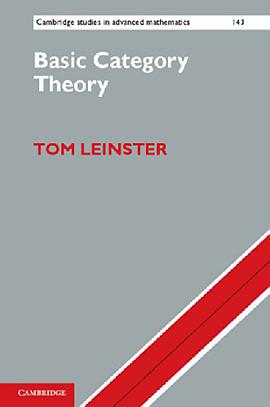Basic Category Theory
Douban
Tom Leinster
Sinossi
This short introduction to category theory is for readers with relatively little mathematical background. At its heart is the concept of a universal property, important throughout mathematics. After a chapter introducing the basic definitions, separate chapters present three ways of expressing universal properties: via adjoint functors, representable functors, and limits. A final chapter ties the three together.
For each new categorical concept, a generous supply of examples is provided, taken from different parts of mathematics. At points where the leap in abstraction is particularly great (such as the Yoneda lemma), the reader will find careful and extensive explanations.
contents
Note to the reader page vii
Introduction 1
1 Categories, functors and natural transformations 9
1.1 Categories 10
1.2 Functors 17
1.3 Natural transformations 27
2 Adjoints 41
2.1 Definition and examples 41
2.2 Adjunctions via units and counits 50
2.3 Adjunctions via initial objects 58
3 Interlude on sets 65
3.1 Constructions with sets 66
3.2 Small and large categories 73
3.3 Historical remarks 78
4 Representables 83
4.1 Definitions and examples 84
4.2 The Yoneda lemma 93
4.3 Consequences of the Yoneda lemma 99
5 Limits 107
5.1 Limits: definition and examples 107
5.2 Colimits: definition and examples 126
5.3 Interactions between functors and limits 136
6 Adjoints, representables and limits 142
6.1 Limits in terms of representables and adjoints 142
6.2 Limits and colimits of presheaves 146
6.3 Interactions between adjoint functors and limits 158
Appendix Proof of the general adjoint functor theorem 171
Further reading 174
Index of notation 177
Index 178